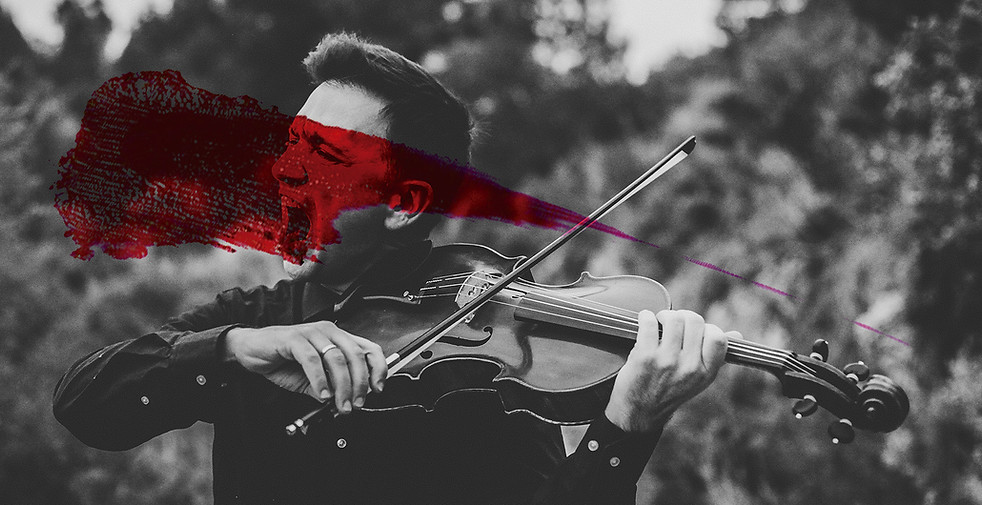VIOLA OPPRESSION
David Fons
Kei Hikichi
Along our history, one of the instruments that has accumulated more adjectives related to its sound is undoubtedly the viola. Its peculiarity has spurred the imagination that lights up all this variety of adjectives. All in all, it is certainly true that when composers choose the viola for their music, it is due to the peculiarity and originality of the instrument. One can see indeed the paradox that from a limitation appears a virtue. As it is well known, the physical dimensions of the viola are not good to reproduce with enough amplitude the frequencies that are requested naturally to this instrument. Therefore, it should be bigger, but it would be then impossible to hold it longer on the arm to play with it. And the interesting thing is that the special dimensions confer the instrument its own and distinctive timbered peculiarity. A peculiarity that is somehow kaleidoscopic and offers a variety of nuances and colours that have been successfully used by the main composers that have dedicated to the viola some of their most important pieces.
One of the most impressive facts is that great composers have shown interest in the viola at the end of their vital and creative trajectories, as happens with Schumann or Max Reger. Brahms also felt the necessity to express himself through this particular voice and even though he did not write any piece just for viola, the use of the instrument in his Quintet op. 115 is quite revealing, as it happens with the transcription of the Sonatas for clarinet and piano op. 120. When the XXth Century comes, we note also two posthumous pieces dedicated to the viola: the Shostakovich’s Sonata, included in this recording, that was his last piece (op. 147); and also, the Concerto for viola and orchestra by B. Bartok, who died before having finished the whole music.
The several pieces one can listen to in this recording have something in common: both composers suffered a type of oppression that, due to different reasons, led to a personal and unequivocal voice, forged in the frustration provoked by the mentioned oppression and overcome in both cases by a strong artistic will and, at the same time, the sublimation of any kind of negativity.
The life of Rebecca Clarke was a constant fight against the prejudices powerfully settled and her own assumption of the reality that reminded her obstinately that being a woman and, at the same time, a great composer was almost an oxymoron.
The relations of Shostakovich with the political leadership of the Communist Party in the Soviet Union and with Stalin itself are more than enough documented and well-know. It was a long period of disappointments, compulsory modifications to survive and subsequent periods of evolution in his language to keep his own voice in spite of the oppression he suffered.
Juan Luis Martínez



Viola Oppression - David Fons - Kei Hikichi (OR 2186 - 6993)


Category: Piano - Romantic music, XXth century - CD
Viola Oppression
David Fons - Viola
Kei Hikichi - Piano
CD Tracks
Sonata para viola y piano
Rebecca Clarke (1886-1979)
Impetuoso
Vivace
Adagio
Sonata para viola y piano op. 147
Dimitry Shostakovich (1906-1975)
Moderto
Allegretto
Adagio
"This peculiar voice of the viola, so close to a human voice without selection bias of gender (neither male nor female), ambiguous, sometimes husky and sometimes melancholic, confers the Sonata the peculiar sound support that Shostacovich searched to express his intimate oppression."
Juan Luis Martínez

